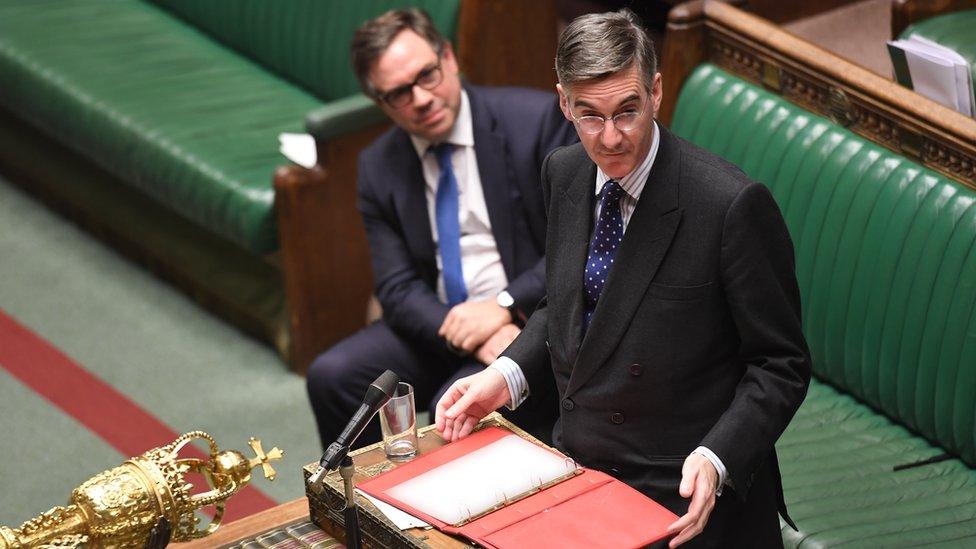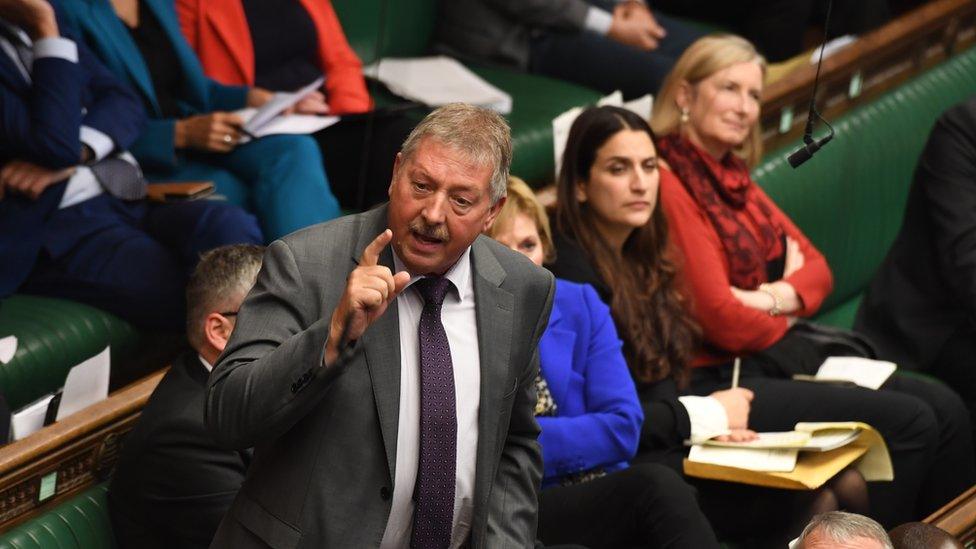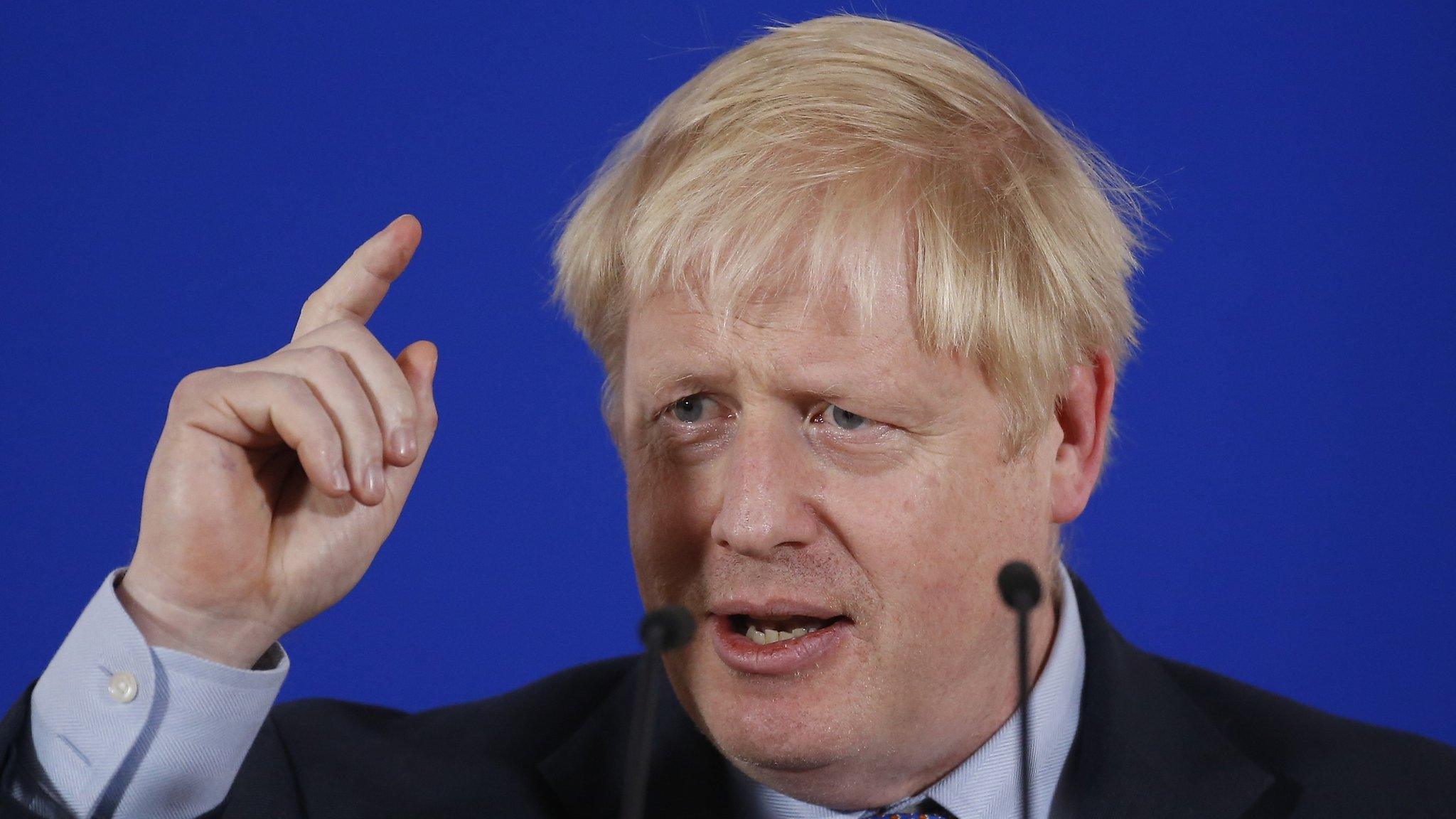Brexit: Another 'meaningful vote' next week?
- Published

So what next?
By the landslide standards of previous Brexit votes, this was a narrow defeat for the government.
And they may calculate that they can reel in a few more ex-Tory rebels add a few Labour MPs from Leave seats, and muster a modest majority for Boris Johnson's Brexit deal, in a further vote next week, even without the support of the Northern Ireland DUP.
In an ill-tempered series of points of order after today's votes, Jacob Rees-Mogg indicated that the government would now seek to hold a further "meaningful vote" to win Commons approval for the deal, paving the way for a Withdrawal Agreement Bill to put it into law.
Ah, argued a number of opposition MPs, wouldn't that amount to putting the same issue to the vote twice?
Remember that the Speaker prevented the government from staging a third vote on Theresa May's deal, on the principle that it was out of order for ministers to keep asking the same question again and again, until they got the answer they wanted.
The Speaker, John Bercow, did not give a definitive ruling, saying that he would ponder the matter and take advice.

Boris Johnson's Brexit deal


If he allows the vote, Labour MPs in pro-Brexit seats will be under massive pressure.
They would much rather go straight to a Withdrawal Agreement Bill, where they can tinker with the detail to their heart's content - possibly allying with dissident Tories to write a customs union into it.
And for the government, putting down a bill without the support of the DUP would be fraught with danger.
An early indicator will be whether the government can win the programme motion necessary to ensure the Bill gets through in quick time.
Meanwhile, opposition MPs were keen to know whether the PM would follow the terms of the "Benn Act" and write to the EU, to request a further extension of UK membership.
His enigmatic reply that he was not prepared to "negotiate" an extension did not, it seems to me, exclude the possibility of sending the required letter.
There was a very interesting discussion of what might then happen in Lord Pannick's speech to Saturday's sitting of the House of Lords.

The DUP's Sammy Wilson is disenchanted with the government
He suggested that a flat refusal to send the required letter should provoke the resignation of the Lord Chancellor and the Attorney General, but that the Benn Act did not preclude the prime minister from saying to EU leaders he didn't want an extension - there was a very thin line, and the result could be "a very interesting case in the Supreme Court".
Meanwhile, the Parliamentary programme for next week, including that new "meaningful vote" and dicey-looking votes on the Queen's Speech, will have to be rejigged.
With no government majority, and its DUP allies looking very disenchanted, the chances of an amendment being passed are high - spelling further trouble.
Once, such a defeat would have automatically triggered the resignation of the government, but in the era of the Fixed Term Parliaments Act it is unclear what the implications would now be.
One educated guess, from Sir Bernard Jenkin, the senior Conservative who chairs the Public Administration and Constitutional Affairs Committee, is that the prime minister would be within his rights to demand a formal no-confidence vote in the terms set down in the Fixed-Term Parliament Act - and remain in office unless and until such a vote was passed.
It's going to be an interesting week.
I promised a blog on what's coming up in Parliament next week, and indeed, it is more than half written; the trouble is, as outlined above, the agenda for next week will have to be reshaped. So I will hold off publishing it until I know more. Apologies.
- Published18 October 2019

- Published21 October 2019

- Published18 October 2019

